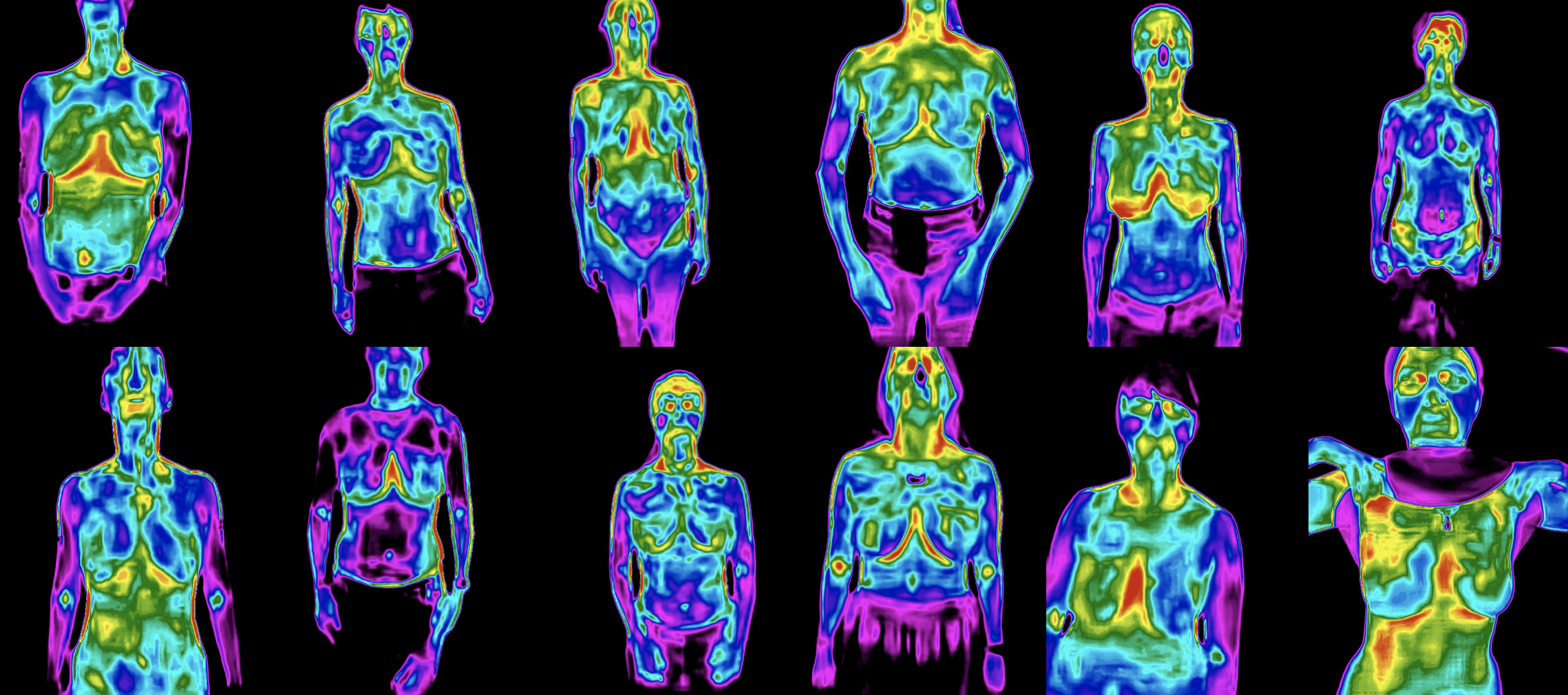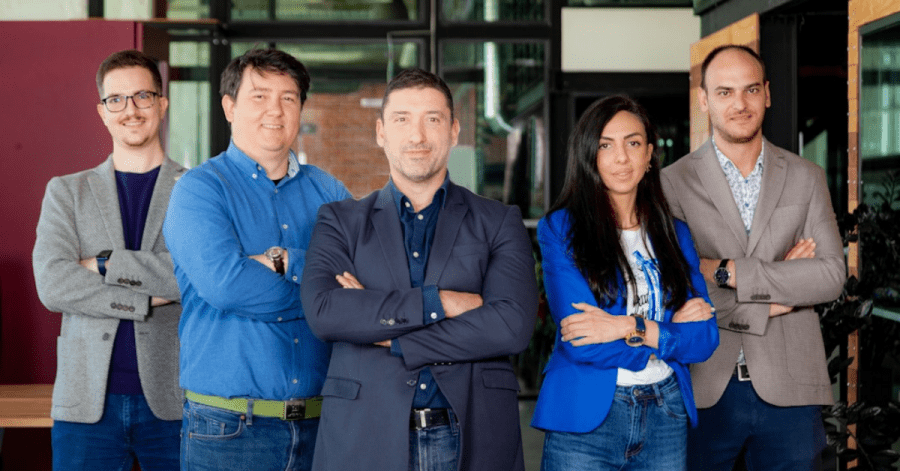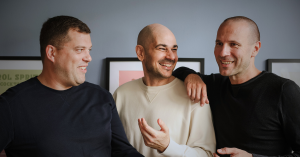A Bulgarian project that aims to develop a digital solution for early detection of breast cancer through AI analysis of thermal images was recognized as one of the six winners at the Global Initiative of Novartis Oncology “Breaking Barriers Health Systems Strengthening (HSS) Challenge”. The project was developed by Bulgarian AI thermal imaging startup Kelvin Health, Novartis Bulgaria, the local division of global pharmaceutical company Novartis, and MORE-Darzalas Foundation.
The “Breaking Barriers Health Systems Strengthening (HSS) Challenge” is organized by Novartis Oncology and aims to improve health systems through establishing standards and practices for screening and preventive medicine on a global level. The solution of the Bulgarian team, based on the technology of Kelvin Health, was selected out of 81 proposals from 45 countries.
Kelvin Health, which is a spin-off from image recognition company Imagga, was established in 2020 with the mission to combine thermal imaging and AI to allow for remote disease screening. To learn more about the progress the startup has made with the research and development of its solution, The Recursive team met with Georgi Kadrev, CEO and co-founder of Kelvin Health.

Georgi Kadrev, CEO and co-founder of Kelvin Health, © Kelvin Health
The Recursive: How did you decide to develop a solution for early breast cancer detection?
Georgi Kadrev: Kelvin Health started off at the beginning of the pandemic. At first, we were thinking of centering the solution around detecting respiratory viral diseases and the complications arising from them. Our idea changed a few months later when we presented it in front of the members of the Digital Health and Innovation Cluster Bulgaria. Novartis Bulgaria, one of the members of the NGO, took interest in our solution, more particularly in its implementation for early detection of breast cancer. This was a breaking point for us as we realized that the application of AI analysis of thermal images in this medical field can have a huge positive impact on the health industry on a global scale. We started the collaboration with Novartis Bulgaria and enrolled together for the “Breaking Barriers Health Systems Strengthening (HSS) Challenge” organized globally by Novartis Oncology afterwards.
Becoming one of the 6 winners has brought us an additional budget to proceed with our research and development. In the project, we and Novartis Bulgaria are responsible for developing and testing the solution, while MORE-Darzalas Foundation is responsible for finding patients from Bulgaria to participate in the trials.
How does the Kelvin Health solution work?
The thermal camera that is part of our solution detects the body temperature projected on the skin by the particular underlying organ(s). If there is an abnormal change in the temperature of a particular sector of the organ, this means the blood flow in the area is not normal. In cases of inflammation, the particular zone appears warmer than usual as the body directs more blood, infused with immune cells and nutrients in order to fight the infection. When there is a spasm or a tumor neoplasm, the blood has difficulty passing through the area. In this case, the thermal camera detects the lower temperature, associated with the troubled blood flow, and displays it correspondingly.
Then, the images from the camera are processed by our AI algorithm, which is being trained to recognize and report for malformations in the breast tissue, identifying at what stage a neoplasm is. We created the solution with a mission to provide people with a way to easily monitor their health condition to complement the standard practices and procedures for screening breast tissues.

Breast Cancer Screening, © Kelvin Health
What are the limitations of thermal imaging and in what other fields can your solution be implemented?
From the technological perspective of thermal camera technologies, it is easier to recognize temperature changes of an external body organ than an internal one. Let me take the example of the lungs. Protected from the rib cage, along with other organs, lungs are also hidden by the big pectoral and back muscles and a layer of fat. This significantly reduces the possibility of screening its temperature. There hasn’t been discovered a systematic way to detect lung cancer in its early stages, thus the possibility of a lethal outcome is bigger.
In contrast, human breasts are external organs, with the mammary glands close to the surface of the skin, and are structured in a way that they do not insulate heat. The tissue is also finer and does not interfere with thermodynamics.
Our solution has the potential to detect other conditions, such as varicose veins and other vascular diseases, respiratory infections, and autoimmune diseases leading to inflammation.

Thermal camera images of ER trauma, © Kelvin Health
What will you be focusing on from now on with this project?
Our main priority is to collect data through thermal images. We have officially concluded a data collection agreement with First Gynecological Hospital “St. Sofia”. When women visit a mammalogist for medical tests, they will also be able to go through thermal scanning with our camera. With this, we are broadening the spectrum of preventive tools for monitoring early-stage cancer. We are also negotiating with the Clinical Center Maribor, Slovenia, and with other clinical centers and hospitals in Italy, Switzerland, and the US.
Initially, we aim to gather data from around 6000 people, around 50 000 thermal images in total. This will happen in the next 13 to 15 months. We are planning on having around 1200 patients with normal health status and 4800 who are in the four different stages of breast cancer. At the same time, we will be teaching the algorithm to recognize the different conditions and stages of cancer that can be seen on the images. Parallelly, we will start negotiations for trials and further testing with regulators. In countries such as the US, as well as the EU, this is a fixed and long process which we need to complete in order to be able to bring the solution to the market. The goal for such a technology to be approved by regulators is for it to match the diagnosis, obtained through regular testing methods such as mammography, echography, breast magnetic resonance imaging, and biopsy with an accuracy (sensitivity and specificity) above 95%.
Are you planning on fundraising any time soon?
We are planning on raising capital at a larger scale once we gather the first batch of data needed for testing and validation. We have already started our financial planning and will probably be fundraising abroad, in the US, and from VC’s with an extensive track record in healthcare and/or corporate funds of big pharmaceutical and medical device companies that operate through venture arms.
What message do you want to convey with your work in the field?
When it comes to cancer, early discovery is of utmost priority for fighting it. Breast cancer is the most frequently diagnosed cancer among women worldwide and the second one overall. The statistics also show that over 95% of women who discovered their condition at an early stage, managed to recover. People are becoming more eager to decide when and how to screen their health status. We would like to make that possible. For a lot of people, the psychological stress from being medically tested for a particular disease is a main influencing factor for postponing the decision. Other factors such as career and having to take care of their children and older relatives lead them to neglect their health. Another problem is the absence of adequate healthcare equipment and the lack of specialists, even in developed countries, due to a range of logistical and financial factors. While still in the process of validating our solution, the long-term vision of Kelvin Health is to create a technology that enables users to screen themselves for dangerous conditions from their homes. We believe that early, regular and effortless screening that is accessible to anyone, regardless of their social, financial, and geographical status can turn breast cancer deaths into a thing of the past.








